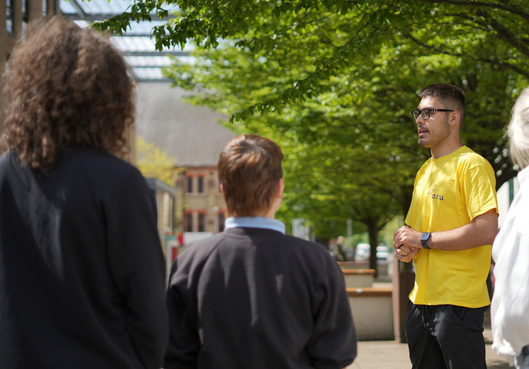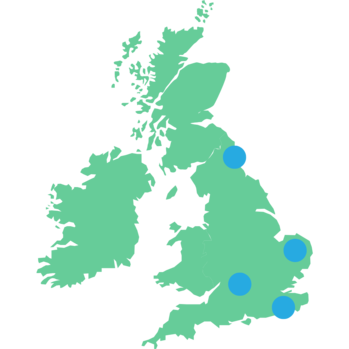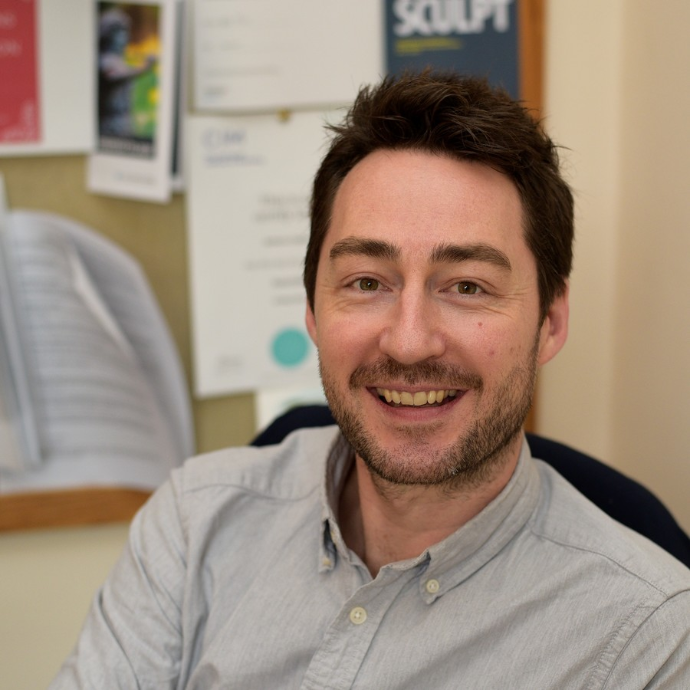"I had a misconception that apprenticeships were limited to more vocational subjects."


Eagle-eyed readers might remember Naimat: we first told her story last year after she secured her place on the apprenticeship, delivered jointly by the University of Gloucestershire and St. James’s place. Naimat is from Swindon and went to Cirencester College where she studied Computer Science, Business Studies and Fine Art - and was also on our Fantastic Futures programme. She didn’t want to do a degree in Computer Science, which is what most universities offered, as she felt it was too narrow. She loved technology but didn’t want to limit her opportunities. She was looking for something different, and she found it in the form a degree apprenticeship in cyber security.
So, has the apprenticeship lived up to expectations so far?
“It’s actually exactly like I thought it would be! I think that’s a credit to the recruitment programme: I knew more or less what to expect before I started. Going to see the office environment beforehand was critical: I was able to visualise myself there and witness the interactions. Honestly, it’s been great so far. I’m learning so many new things: hands-on experience in new technologies, rotating within my team, working with people in different roles. I feel it’s better for me than a taught degree would be: being able to apply my learning straight away and seeing the impacts in my work - that’s the best part. Working with real clients and third-parties feels like a better way of learning than storing up three years of education before entering industry - for me, at least.”
Just a year ago, Naimat was planning to do a three-to-four-year taught undergraduate degree course. But seeing what a degree apprenticeship offered changed her mind:
“I had a misconception that apprenticeships were limited to more vocational subjects such as Health & Social Care, Construction, Hair & Beauty - or that the qualification level was limited. I had no idea you could get a degree apprenticeship, or even a masters! The course is exactly the same just without the price tag of a traditional degree. I also have the option of career progression after. What’s not to like?!”
Does she feel that she’s missing out on the social aspects of a taught degree?
“Yes and no. It’s a bit strange staying at home when most of my friends have gone off to university, and here I am working 9-5 in a corporate role at a young age. But the social aspect is still there: there are many other apprentices in my cohort, a strong sense of culture, a shared purpose and lots of early career socials and evenings out - when allowed!”
Naimat is passionate about helping more girls and women to consider tech subjects as both education and career options. Only three of the 25 pupils in her Computer Science class at Cirencester College were female - just 12%. Why does she think that is?
“I think girls may be scared to get into the field. Tech seems aimed at boys from a much younger age via gaming. In my experience, girls have broader interests growing up so maybe don’t see it as an option when younger and unconsciously stream themselves out of it. Maybe they think it’s monotonous or boring - that it’s just endless coding. I knew that [going into a male-dominated industry] might be a struggle. I knew that there wasn’t an even gender balance and that I might feel a bit isolated, but that didn’t stop me because I was passionate about the subject.”
What does she think can be done to change that?
“We need more advertising and campaigns aimed at girls and women. GCHQ is very focussed on getting more women into cyber. Organisations like Girls Who Code are doing great work. Personally, I can deliver more talks and events about my experience, particularly around inclusion and diversity, and the realities of life in a workplace.”
Naimat is also clear on the importance of mentoring:
“Mentoring is really important. I’m already signed up for mentoring through my workplace, and I’m looking to mentor specifically for Villiers as well and other organisations where young women - and men - want to get into tech, and share my journey: how it evolved from GCSE to A level, and now degree apprenticeship. It’s important to know that it takes hard work and dedication. It’s a very competitive sector, so you have to be motivated and prepared to put the time in.
"My mentor isn’t in tech, she’s in finance - a grad who came off the same programme four years ago and is now at the peak of her career. So, to hear her story and see her progression in finance - another male-dominated field - is very inspiring. I aspire to a similar journey: building a big network from a young age and working with a huge range of people to gain experience.”
One mentor in particular sticks out for Naimat:
“Julie, my Villiers Park mentor! Having an external person there to guide you through is so important and a real benefit of the Villiers Park programme. Someone to feed back to, who checks in on how you’re feeling, your ambitions and goals, who is separate to college and family. She was just a great guide and mentor. Just knowing she was there gave me comfort. As a young person, you’re not always looking for a solution, just someone to listen. She was particularly helpful during the pandemic - always available through email or Zoom for guidance and moral support.”
Help us support young people like Naimat to reach their potential
Our Impact








